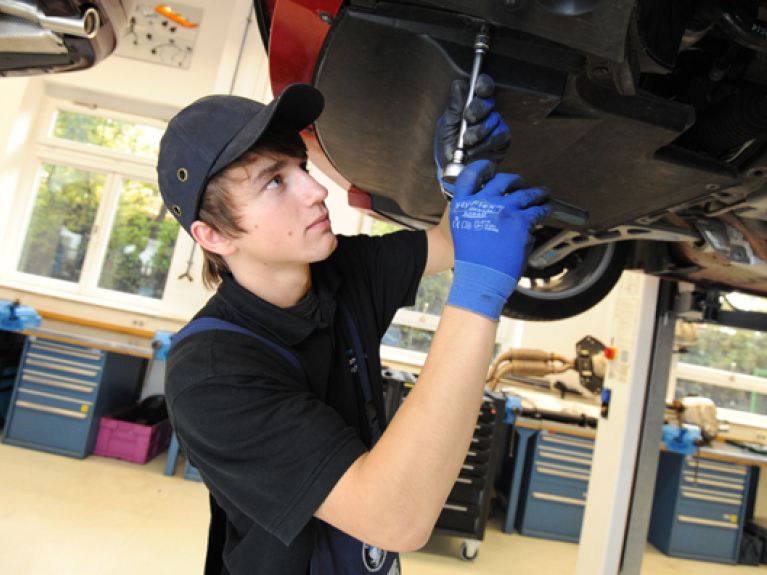Dual training worldwide
The German model of dual education is catching on worldwide

Worldwide demand
The German model of dual education, in which young people are prepared for a career by a combination of practical training in a company and education at a vocational school, is increasingly popular worldwide. In an arrangement with Germany three years ago, and with the participation of the European Commission, Spain, Greece, Portugal, Italy, Slovakia and Latvia have agreed to adopt the structures of the dual educational system. Russia uses the same system to train mechatronic technicians, warehouse logisticians, bakers and cooks; in India the first group of young people are being introduced to the foundations of metalworking; and in Brazil toolmakers are also completing a dual education. Cooperations also exist with China and Thailand. And in Malaysia there is already a qualification based on the German master craftsman qualification. Implementation, however, is not always so easy: Slovakia, for example, first had to put a new Vocational Training Act into effect before the system could be launched.
GOVET, central German Office for International Cooperation in Vocational Education and Training
Because of the high demand, there exists at the Federal institute for Vocational Education and Training (BIBB) a central German Office for International Cooperation in Vocational Education and Training – GOVET for short. It handles all enquiries about the German vocational training and education system. Since 2013 people from 84 countries requested information. About 40 per cent came from ministries, embassies and government agencies, and one quarter from the business sector.

